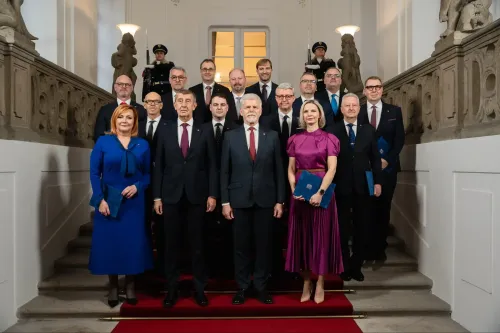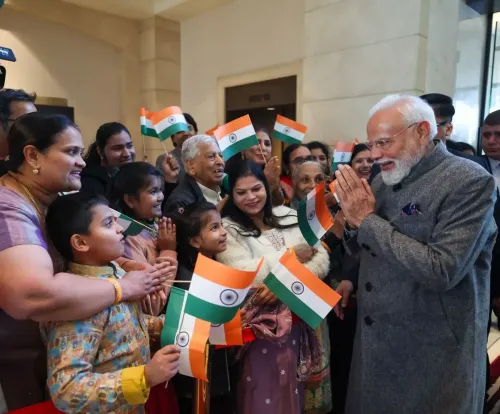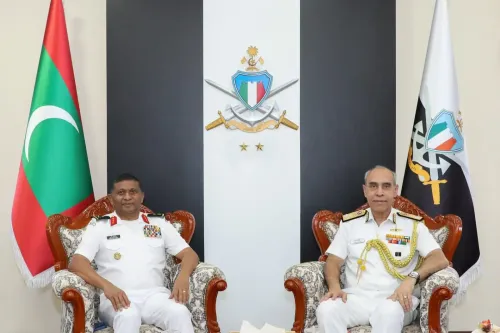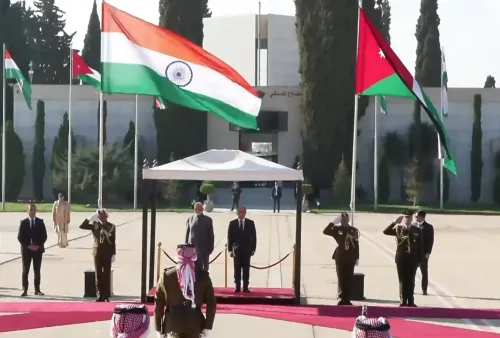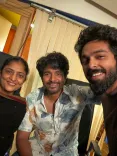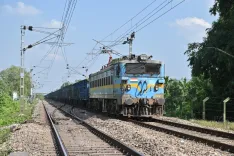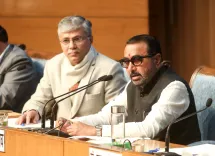Abandonment of Peace Negotiations in Eastern Congo
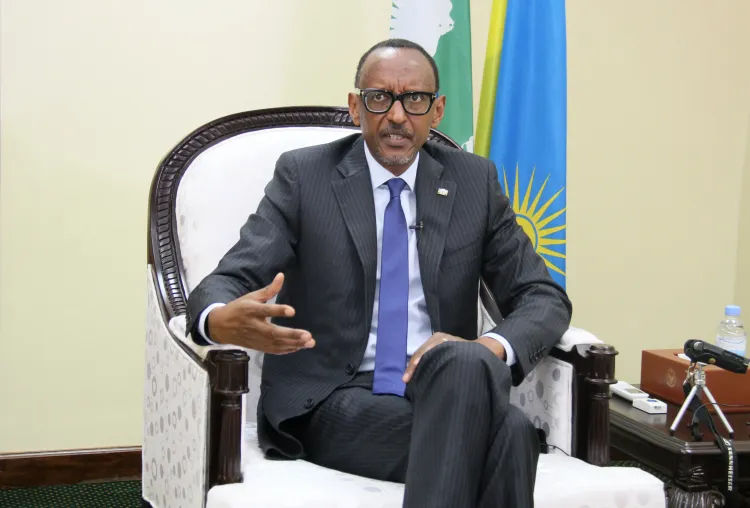
Kinshasa, Dec 15 (NationPress) A peace summit that was set for Sunday to tackle conflicts in the eastern Democratic Republic of the Congo (DRC) was unexpectedly canceled at the last moment due to a challenging negotiation deadlock, as revealed on Monday.
Angolan President Joao Lourenco was poised to welcome DRC President Felix Tshisekedi and Rwandan President Paul Kagame, aiming to alleviate tensions in eastern DRC by reaching an agreement anticipated to be signed by the three leaders.
The summit was intended to be part of the "Luanda Process," a peace initiative initiated in 2022 and supported by the African Union, to promote regional stabilization.
Tshisekedi arrived in the Angolan capital of Luanda early Sunday for the summit and held discussions with Lourenco and former Kenyan President Uhuru Kenyatta, who is the mediator of the "Nairobi Process," a parallel peace framework led by the East African Community (EAC).
However, Kagame chose not to board a flight to Luanda and withdrew from the summit, as reported by the Xinhua news agency.
"The agreement has been 99 percent negotiated," stated Angolan Foreign Minister Tete Antonio to the press after the cancellation of the tripartite summit.
"One of the parties requested the postponement of the summit until there is a common language," added Antonio.
The peace agreement was derailed due to a challenging negotiation standoff.
Meanwhile, tensions on the ground have escalated, with ongoing confrontations between government forces and rebel groups.
According to Rwanda's Foreign Ministry, a ministerial meeting in Luanda on Saturday failed to achieve consensus between Rwanda and the DRC regarding a commitment to direct negotiations with the March 23 Movement (M23) rebel group.
"The DRC had accepted the principle of dialogue with the M23, yet surprised us with a refusal on the eve of the summit," remarked Rwandan Foreign Minister Olivier Nduhungirehe.
The eastern DRC continues to experience instability due to the M23 rebel group, which has been advancing and capturing significant territories. The DRC government accuses neighboring Rwanda of providing military support to the M23, a claim that Kigali denies.
While denying any links to the M23, Rwanda has accused the DRC military of collaborating with the Democratic Forces for the Liberation of Rwanda, a Rwandan rebel group held responsible for the 1994 genocide against the Tutsi in Rwanda.
"The ministers negotiated late into yesterday, but they could not reach an agreement on all points," said Antonio, adding that Sunday’s summit "would therefore not have resulted in an agreement."
However, Kinshasa contended that the ministerial meeting on Saturday ended in a "deadlock" after Rwanda introduced a last-minute condition, demanding that direct dialogue with the M23 precede the signing of any agreement.
"We are not going to talk directly with a terrorist group," asserted DRC Foreign Minister Therese Kayikwamba Wagner during a press briefing late Sunday in Kinshasa. "If the M23 group wishes to express its grievances and concerns, it will only occur within the framework of the Nairobi Process."
On the same day, M23 rebels reportedly seized control of the town of Matembe in the eastern North Kivu province, which is the epicenter of the ongoing hostilities.
This location is deemed critical for the DRC military to halt the insurgency's progress towards the northern part of North Kivu and potentially into neighboring Ituri and Tshopo provinces.
As a component of the peace initiative, a ceasefire agreement was enacted on August 4. Nevertheless, confrontations between the DRC military and the M23 have intensified since late October. The M23, which did not endorse the ceasefire agreement, has increased its territorial control.
"The M23 ... has consolidated its civilian and military occupation in North Kivu. Today, it governs an area twice as extensive as in 2012," reported Bintou Keita, special representative of the UN Secretary-General in the DRC, during a UN Security Council meeting.
The M23 is composed of former rebels from the National Congress for the Defense of the People (CNDP) and derives its name from the March 23, 2009 agreement signed between the CNDP and the DRC government.
In November 2012, the M23 occupied Goma, the provincial capital of North Kivu, for ten days.
After their defeat by the DRC army, the M23 signed a peace agreement with the government in December 2013, committing to demobilize its fighters and transition into a political party. However, M23 leaders have since alleged that the government has failed to uphold that agreement.
The M23 insurgency resurfaced in late 2021. The United Nations estimates that nearly 6.4 million people have been displaced in the DRC due to armed conflicts and natural disasters.


